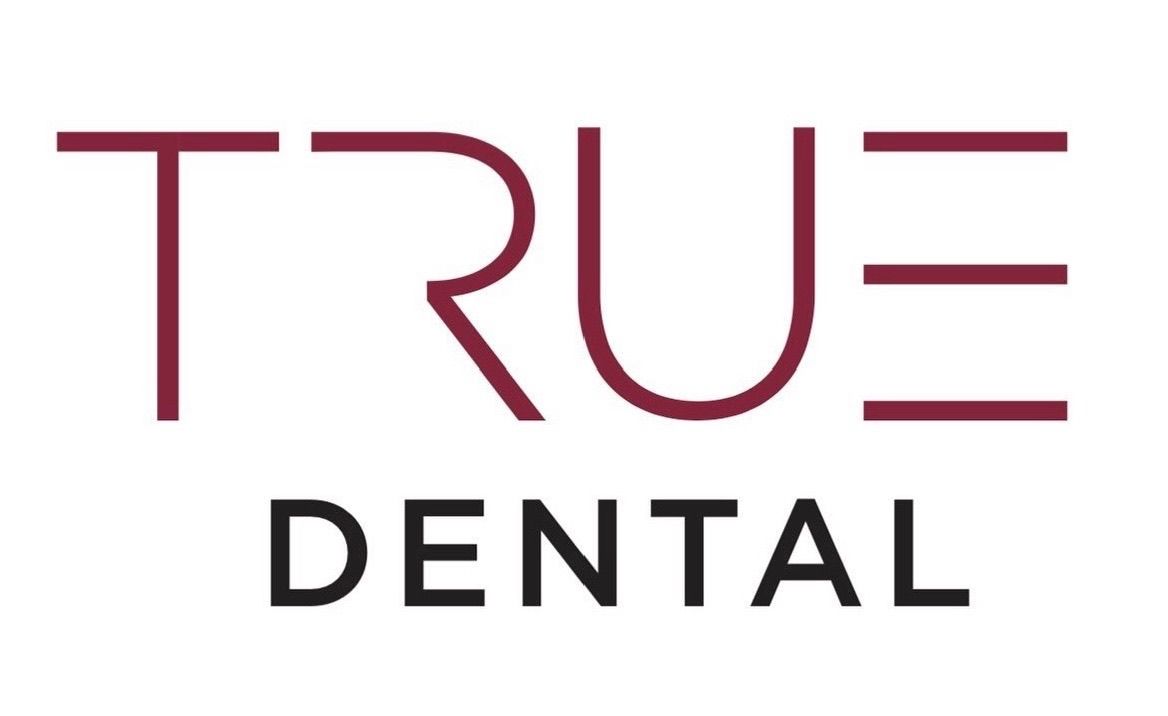FAQs
True Dental
Have a dental-related question? True Dental has the answer.
Check out these FAQs and give us a call today for more information!
-
Do I Really Need To Floss?
Flossing is extremely important. While brushing twice daily helps clean the outer surfaces of the teeth, it often leaves the surfaces in between the teeth and below the gums untouched. Floss can clean these harder-to-reach areas, preventing cavities between teeth, gingivitis, and gum disease.
-
Why Do I Need a Dental Exam?
Annual dental exams are a key component in maintaining good oral health. During a yearly exam, the dentist evaluates a patient's X-rays, thoroughly examines the teeth and surrounding tissue, and completes an oral cancer screening. These exams identify issues before they become bothersome or more serious.
-
Why Do I Need To Take Updated X-Rays?
Updated X-rays are among the most important tools when it comes to diagnosing cavities or other dental problems. While looking directly in the mouth is also important, it is just the tip of the iceberg. Often, areas of decay can be seen much sooner on an X-ray than they can by just looking at the tooth. When caught early, this leads to a smaller filling and a stronger, healthier tooth overall. Dental infections that occur below the teeth and gums can also be caught much sooner with an x-ray, helping to avoid discomfort and other problems down the road.
-
Should I Allow the Hygienist To Give My Child a Fluoride Varnish?
Fluoride varnish is a great way to help prevent cavities, especially in children. Fluoride helps strengthen a patient's enamel, the protective outer layer of our teeth. By maintaining this outer protective layer, the risk of cavities is substantially reduced.
-
At What Age Can I Bring My Child In To See a Dentist?
According to the American Academy of Pediatric Dentistry, children can be seen as soon as their first tooth comes in and should be seen within the first year. While this seems early, it helps acclimate your child to the environment and people involved. These are typically very quick appointments - checking to ensure your child's teeth are healthy, allowing your child to get used to coming to the dentist, and ideally starting good habits early.
-
What Is the Best Type of Toothbrush To Use?
Studies have consistently shown that electric toothbrushes provide a deeper, more thorough cleaning. Many electric toothbrushes have features such as a timer to ensure brushing for the recommended 2 minutes, a pressure sensor to help avoid hard brushing, which can lead to gum recession, and others to help maximize your homecare.
-
How Often Should I Come Into the Office for Regular Checkups?
On average, two cleanings per year are recommended. One of those cleanings should also include x-rays and a dental exam. For patients with periodontal disease or other risk factors, more frequent cleanings may be advised.
-
Does My Diet Affect My Teeth?
Diet plays an extremely significant role when it comes to oral health. It is not only what you eat but also how you eat that can affect teeth. Sugary beverages such as sodas or sports drinks, candy, and even potato chips and crackers are foods that can lead to an increased risk of cavities. Snacking consistently throughout the day can also be harmful to teeth. Every time we snack, our teeth become more vulnerable to cavities for a short period. If we are snacking often, our teeth never have time to "recover" and can remain susceptible, leading to more cavities.
-
What Should I Do in Case of a Dental Emergency?
In case of a dental emergency, give the office a call. In cases of pain, swelling, broken teeth, etc., we try our best to see you as soon as possible. In cases of swelling that is making swallowing or breathing difficult or uncomfortable, we advise going directly to the emergency room, where IV antibiotics may be needed.
-
What Kind of Toothpaste Should I Be Using?
There are different toothpastes on the market depending on a patient's dental needs. Sensitivity toothpaste, such as Sensodyne, can help patients who struggle with cold sensitivity. Other toothpastes, such as Parodontax, focus on gingivitis and overall gum health. Whitening toothpastes are also popular among patients. We offer prescription toothpaste at the office for those patients at higher risk of getting cavities due to other risk factors as well.



Share On: